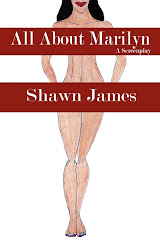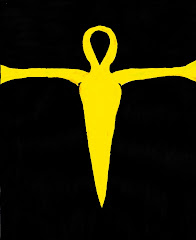Fiction. Nonficition. African-American readers mostly buy books in these two categories. So why the heck am I publishing a screenplay instead of a third novel?
Do I have money to waste? Nope. I’m currently unemployed and still looking for a job almost two years later. But rather than let All About Marilyn sit in a box gathering dust, I thought it would be more effective to use my script as a way to help other brothers and sisters learn.
I understand while African-American audiences enjoy black cinema, there are very few tools to teach brothers and sisters about the craft of screenwriting. Sure African-Americans can find a DVD of classic black movie like Do The Right Thing, Hollywood Shuffle, Boyz N The Hood, Straight Outta Brookyln, House Party, and New Jack City in stores, but when an aspiring black filmmaker tries to find a copy of a script of these to learn the way these writers told their stories there’s next to no material anywhere.
In my search for African-American screenplays to study while writing All About Marilyn, I ran into roadblocks. Lots of roadblocks. Most of the screenplays available online, in paperback, and at the library were primarily of white films. Worse, many had numbers down the side complete with camera angles. These shooting scripts, formatted for later on in the production process were of little use to me. Shooting scripts often confuse aspiring and first-time screenwriters; some even incorporate those numbers and camera angles into their stories!
I understand that in order for there to be future Black filmmakers there must be hard copies of screenplays for brothers and sisters to read so they can learn how to write a script. It’s very important for African-American filmmakers to have copies of speculative scripts (a script that only focuses on the story) so they can learn the proper format and technique for telling a story for the screen. More importantly, it’s important for aspiring African-American screenwriters to have copies of scripts of African-American films and TV shows by African-American writers so they can see stories about our own experiences from our own writers.
My mission with this book is to get African-Americans excited about screenwriting. Researching the industry, I’ve learned that out of the 14,000 members of the Writers Guild of America, less than two percent are African-American. And out of that 14,000 membership, only 300-500 writers work in a given year regardless of race or ethnicity. Breaking down those numbers, two percent of four hundred means at best a handful of African-Americans are writing scripts in Hollywood at any given time.
Reading those paltry statistics, there’s a desperate need for more black Screenwriters. Over the past two decades, Black films have gone from a flurry of major studio releases to a trickle of independent, self-produced films by filmmakers like Tyler Perry and T.D Jakes. Without more African-Americans behind the camera to tell the stories about the black experience, there can be no black films. Worse, an entire generation of Black people will not know what it is to see stories featuring people who look like them sharing their experiences onscreen.
Saturday, February 20, 2010
Subscribe to:
Post Comments (Atom)






No comments:
Post a Comment